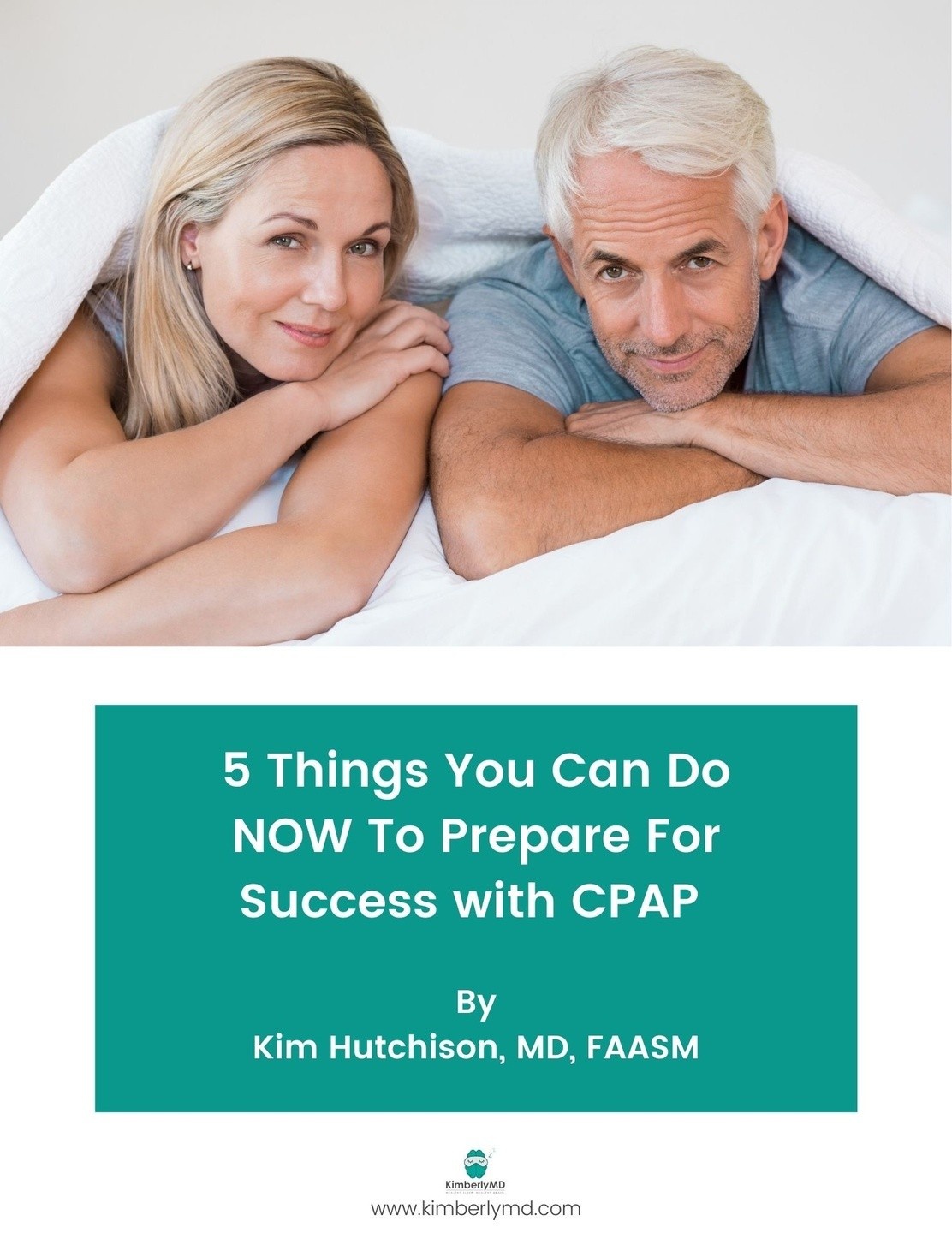Snoring While on CPAP
Snoring While on CPAP
Today, let’s tackle a common concern among CPAP users: snoring. Is it just a nuisance, or a sign of something more?
Snoring while using your CPAP might seem contradictory. After all, isn’t the CPAP supposed to prevent that? Well, it's not always straightforward.
Snoring suggests that there is mild obstruction - or blockage - in the back of the throat, resulting in vibration of the soft palate. So it IS true, that CPAP at the correct setting should eliminate snoring. And hopefully, you snore a whole lot LESS with CPAP than you do without it.
But snoring in the absence of apnea is not necessarily a problem (although try telling a bed partner that!). Fortunately, most modern CPAP machines are Auto-CPAPs, meaning that they will automatically adjust the pressure up if apneas are detected. Likewise, if apneas are not detected over a period of time, the pressure will drop down. When this works properly, your machine’s residual apnea-hypopnea index, or AHI, should be below 5 events per hour.
So, if you snore with your CPAP on, the first thing to do is check your machine’s AHI. This crucial number is found on your machine’s data app or can also be found on the CPAP machine itself. An AHI above 5 suggests that your CPAP might not be optimally adjusted.
If you find your AHI is consistently high, it’s a signal to talk to your healthcare provider. They can adjust your CPAP settings to better suit your needs.
Some of you might notice snoring at the beginning of the night. This could be due to the ramp feature, which gradually increases pressure as you are falling asleep. You may notice snoring during this time until the pressure gets to its goal. You can always turn this feature off to eliminate this snoring.
But here's some good news: occasional snoring, especially with an AHI below 5, is generally not a problem. It doesn’t always indicate a failure in your CPAP therapy, and if it isn’t bothering anyone, it can be overlooked.
Interestingly, lifestyle factors can play a role. Alcohol consumption, the use of muscle relaxants, or weight gain can lead to snoring, even with CPAP use. If you consistently snore and notice a return of daytime sleepiness or non-refreshing sleep, it might be time for a reevaluation with your sleep medicine provider.
Remember, understanding your CPAP and how it interacts with your body is key to effective sleep apnea management.
Thanks for being here, I’ll see you next week.



